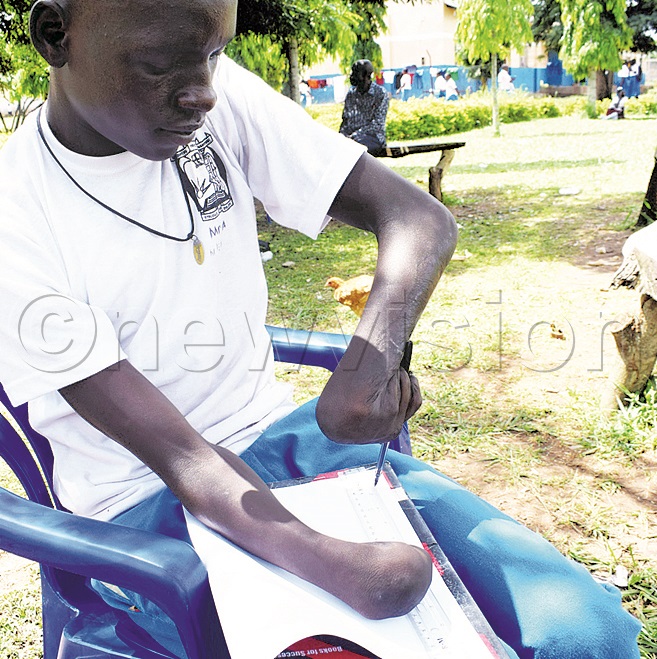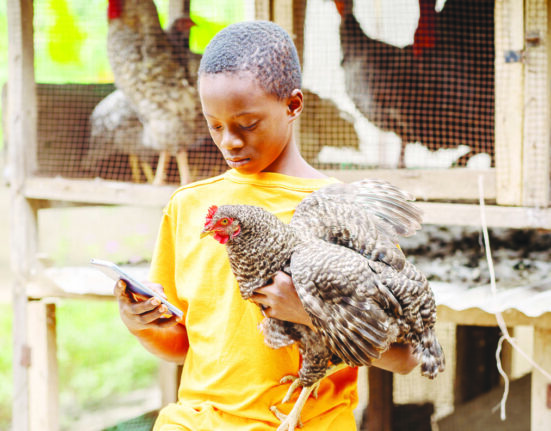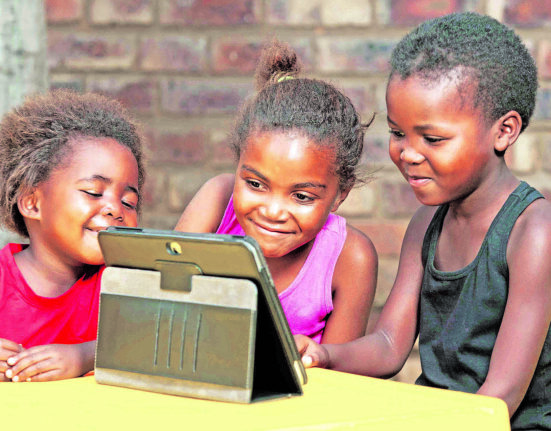This article was first published in the New Vision on December 21, 2022
By Moses Nampala
Sixteen years ago, Paul Nanjala was born a normal child. Two years later, he had both his hands deformed. A member of his family reportedly dipped them in a pan of hot cooking oil during a domestic dispute.
Nanjala’s fingers got disfigured in this gruesome incident. All that was left of his hands are stumps. But it is surprising that Nanjala can write.
Nanjala, now a Senior Three student at Bugwere High School in Budaka district, writes with remarkable agility.
How Nanjala Has Adopted
Nanjala’s forefinger, which is twisted backwards on his left arm, is the most instrumental of all his disfigured fingers when it comes to writing.
It closes around a pen, but before he writes, he places a stump of his right hand over it (forefinger) so it can hold the pen firmly.
Nanjala writes quickly and his writing is legible. It is this finger that he also uses to get a pen and ruler out of his pocket and sometimes bag.
“My dream is to become a medical doctor because I find science subjects much simpler and interesting,” Nanjala, who scored aggregate 13 in his Primary Leaving Exams, says.
“My handwriting has improved over time solely out of personal effort,” he adds.
Journey

Nanjala says it took him a lot of practice during his primary school years to learn how to write. He adds that his primary school teachers took pity on him because it was hard to start writing, but he can now draw pictures of various shapes.
Suffering Setbacks
Nanjala’s dream to join secondary school had suffered setbacks in Bulambuli district where he wrote his PLE at a school under the Universal Primary Education programme.
He says a number of secondary schools in the district refused to admit him because his mother could not raise fees.
However, Osman Orion, the headteacher of Bugwere High School in Budaka, says the institution gave Nanjala a bursary to allow him pursue his academic dreams.
“We do not regret giving him a bursary because he is brilliant always among the top students with an exceptional flair in science subjects,” Orion says.
Meanwhile, Nanjala says he is not taking the school’s kind gesture for granted.
“I am reading hard so that I can realise my dream of becoming a surgeon. My success means liberating myself, my mother and my two siblings from poverty,” Nanjala, who lost his father, says.
Nanjala’s example is the reason parents should send children with special needs to school.
Unfortunately, many parents continue to deny their children a right to education because of their disabilities.
About 16% of Ugandan children have a disability, the World Bank says.
It is only 170,000 and 8,000 children with disabilities that are in primary and secondary school respectively, according to the education ministry.
Mother’s Words
Esther Namutosi says she did not know her son would ever write and do well in school.
She adds that he repeatedly asked her to take him to school when he turned six.
“I reluctantly took him to school, but by the grace of God, he made it,” Namutosi says.









Leave feedback about this